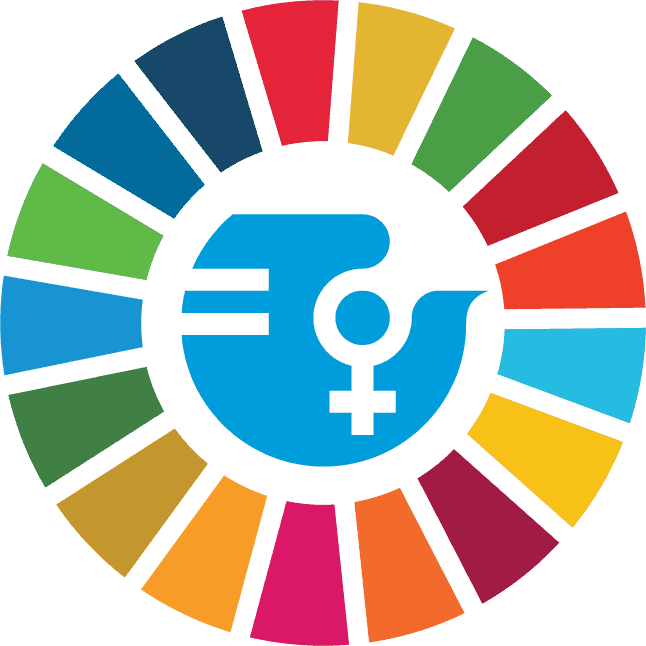Join us on April 28
Session Type: Virtual
Platform: Zoom
Time: : 14:00 to 15:30 CEST
Register here: https://itu.zoom.us/webinar/register/WN_T82-1lkAQQepYoZMh7JCEA
2022 Theme: Access and Safety
Access and Safety was selected as the 2022 thematic priority as part of the initial step for girls to be able to access the digital environment in a safe way. According to ITU’s latest data, the proportion of women using the Internet globally amounts to 48 per cent, compared to 55 per cent of men. In relative terms, this means that the global Internet use gender gap stands at 12.5 per cent. If women are unable to access the Internet and feel safe online, they are consequently unable to develop the necessary digital skills and engage in digital spaces. This in turn diminishes their opportunities to pursue careers in STEM related fields. The 2022 theme hence seeks to encourage discussions and events aimed at overcoming the access and safety barriers that girls face when they aspire to pursue STEM studies and careers.
Girls in ICT Global Dialogue
The Girls in ICT Global Dialogue will mark this year’s celebration of Girls in ICT Day. It will take place in the framework of the WSIS Forum 2022, as part of Gender Mainstreaming track in which the forum promotes and maintains gender equality and women empowerment, guaranteeing the inclusion of women in STEM/ICT.
The dialogue will feature inspiring young role models who will share their experiences and testimonies on access and safety in STEM/ICT, alongside active stakeholders sharing their perspectives, as well as their best practices on access and safety. This dialogue will also highlight the importance of multisectoral engagement and call for action in empowering women through technology.
The discussions will focus on 4 main topics:
- Equal Access: Unequal access to the internet and technology means that individuals are not able to benefit from digital technologies and its diverse opportunities. Most survey respondents said that the first thing that they would do when they want to learn something new or find out latest information is to search on the internet. How can unequal access affect girls in STEM/ICT and what can we do to change this worldwide?
- Accessibility: People with disabilities may encounter additional difficulties regarding access to online resources. STEM subjects use lots of diagrams and formulas in their instruction and, for example, in the case of someone visually impaired this adds an additional level of difficulty for women interested in STEM. How can we make our programmes and STEM/ICT related studies and workplaces more accessible and inclusive?
- Gender stereotypes and workplace environments: Gender stereotypes and societal roles prove to be a significant barrier to education in STEM/ICT. These stereotypes proliferate a sense to a woman that they are incapable and not supposed to be in this place. Male-dominated workplaces and ‘bro’ culture can create a toxic workplace environment and has been identified by respondents as one of the primary barriers to STEM/ICT careers. What type of gender stereotypes and toxic workplaces have they experienced? How can we change these environments for the better? What is the role of an encouraging workplace?
- Safety Online: Online Safety is a key component to girls and young women’s lives today. If girls and young women do not feel safe online or have had unpleasant experiences in the digital environment, they are likely to not feel confident in engaging in future STEM education and careers.
Expected Outcomes
The main goal of the Girls in ICT Global Dialogue is to create a discussion around Access and Safety through Girls in ICT, which would lead stakeholders to be inspired to create and support similar programmes and activities in their respective regions and countries throughout the year.
Agenda
| Time | Discussion |
| 14:00 | Welcome |
| Introductory remarks | |
| 14:12 | Fireside conversation I: Equal Access/Connect the unconnected Ms. Claire Sibthorpe, Head of Digital Inclusion in the Mobile for Development (M4D) team, GSMA Ms. Syeda Shafaq Karim, Director (Wireless) and Head of the Committee on Gender Inclusion in ICTs, Pakistan Telecommunication Authority (PTA) Ms. Sophiyat Sadiq, Generation Connect Africa Youth Envoy |
| 14:27 | Fireside conversation II: Accessibility Ms. Alicia Tambe, Head of International Organizations for Connectivity & Inclusion, Meta Ms. Shanta Arul, Director, Global Technology & Innovation, Public Policy, Netflix Ms. Vidhya Y, Co-Founder and Trustee, Vision Empower |
| 14:42 | Fireside conversation III: Gender stereotypes and workplace environments in STEM/ICT Ms. Helene Molinier, Senior Manager for the Action Coalition on Innovation and Technology at UN Women Ms. Louise Carvalho, Diversity & Inclusion Programme Leader, CERN (European Centre for Nuclear Research) Ms. Elizabeth Kolade, Member of the Cyber Security Experts Association of Nigeria, and Mentee in the 2021 cohort of the ITU Women in Cyber Mentorship Programme Ms. Lydia M. Logan, Vice President, Education and Workforce Development, Corporate Social Responsibility, IBM |
| 15:02 | Fireside conversation IV: Online Safety H.E. Dr. Jyrki Pulkkinen, Ambassador for Innovation at the Ministry for Foreign Affairs of Finland Ms. Courtney Gregoire, Chief Digital Safety Officer, Microsoft Ms. Shamma Bin Hammad, Founder-CEO, CyberHero |
| 15:17 | Open Q&A |
| 15:28 | Closing remarks |
